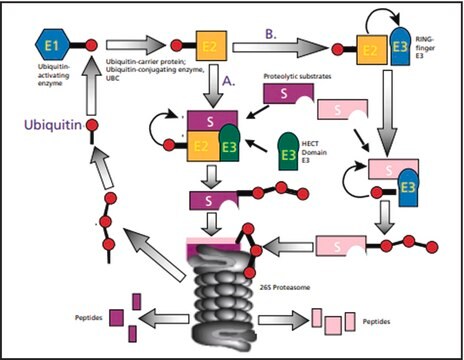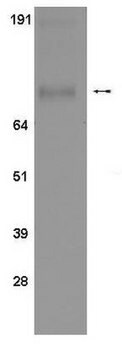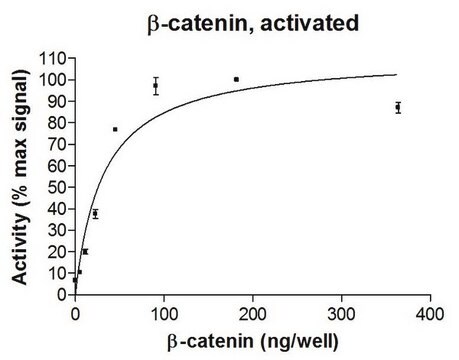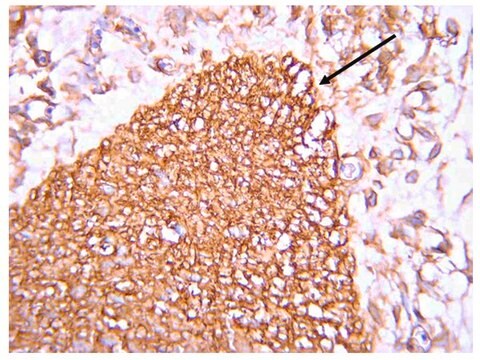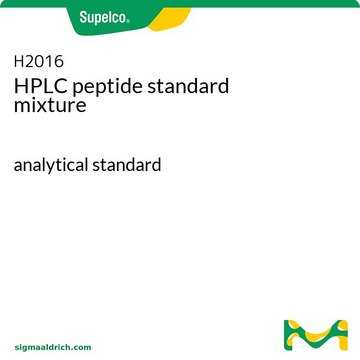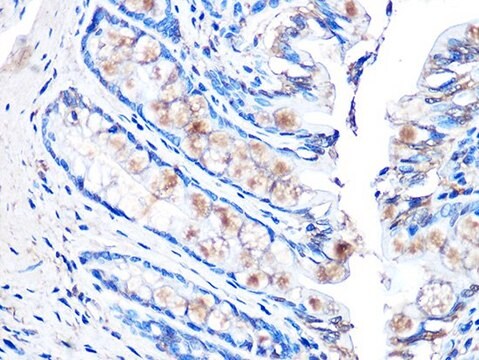05-1319
Anti-EZH2 Antibody, clone BD43
clone BD43, from mouse
Sinonimo/i:
Enhancer of zeste homolog 2, Lysine N-methyltransferase 6, enhancer of zeste 2, enhancer of zeste homolog 2, ENX-1
About This Item
Prodotti consigliati
Origine biologica
mouse
Livello qualitativo
Forma dell’anticorpo
purified immunoglobulin
Tipo di anticorpo
primary antibodies
Clone
BD43, monoclonal
Reattività contro le specie
human, mouse
tecniche
western blot: suitable
Isotipo
IgG1κ
N° accesso NCBI
N° accesso UniProt
Condizioni di spedizione
wet ice
modifica post-traduzionali bersaglio
unmodified
Informazioni sul gene
human ... EZH2(2146)
Descrizione generale
Specificità
Immunogeno
Applicazioni
Epigenetics & Nuclear Function
Apoptosis & Cancer
Chromatin Biology
Qualità
Descrizione del bersaglio
Linkage
Stato fisico
Stoccaggio e stabilità
For maximum recovery of product, centrifuge the vial prior to removing the cap. Avoid repeated freeze/thaw cycles, which may damage IgG and affect product performance.
Risultati analitici
HeLa Nuclear Extracts
Altre note
Esclusione di responsabilità
Non trovi il prodotto giusto?
Prova il nostro Motore di ricerca dei prodotti.
Codice della classe di stoccaggio
12 - Non Combustible Liquids
Classe di pericolosità dell'acqua (WGK)
WGK 1
Punto d’infiammabilità (°F)
Not applicable
Punto d’infiammabilità (°C)
Not applicable
Certificati d'analisi (COA)
Cerca il Certificati d'analisi (COA) digitando il numero di lotto/batch corrispondente. I numeri di lotto o di batch sono stampati sull'etichetta dei prodotti dopo la parola ‘Lotto’ o ‘Batch’.
Possiedi già questo prodotto?
I documenti relativi ai prodotti acquistati recentemente sono disponibili nell’Archivio dei documenti.
Il team dei nostri ricercatori vanta grande esperienza in tutte le aree della ricerca quali Life Science, scienza dei materiali, sintesi chimica, cromatografia, discipline analitiche, ecc..
Contatta l'Assistenza Tecnica.
